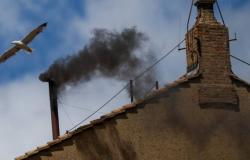Liquefied natural gas (LNG) seems to be the new Eldorado of Totalenergies. The French energy company is increasingly betting there. To establish his domination over this energy, he launched a huge Hub project in Oman.
Totalnergies put on natural gas liquefied to Oman
Totalnergies has just laid the first stone of its future Marsa LNG site in Sohar, in the north of the Sultanate of Oman. With this initiative, the French giant intends to assert its leadership in liquefied natural gas (LNG). The latter has become an energy vector that the group considers central in the energy transition. At the crossroads of strategic and commercial interests, this project amounts to 1.5 billion euros. It also aims to create the very first Share Hub at the Middle East Marine.
The Marsa LNG project is not a banal installation. Corned by Totalenergies (80 %) and its OMANE OQEP partner (20 %), the site is intended to produce one million tonnes of LNG per year from the first trimester 2028. This volume, apparently modest, aims for a changing segment: the aviring of ships in LNG, An alternative fuel increasingly sought after by the maritime sector to reduce its emissions.
-The site is controlled by Technip Energies, another French flagship of energy engineering. But it is above all the strategic discourse that strikes: ” Marsa is a truly innovative project. Small project, a million tonnes of energy, but entirely electrified. We are talking about decarbonation, we are talking about electrification. Here, it’s a reality “Said Patrick Pouyanné, CEO of Totalenergies, during the inauguration ceremony. The installation will be fully powered by a solar park and will benefit from an optimized electrical connection. According to its promoters, it aims to be one of the wealthy LNG factories in the world.
LNG and energy transition: a green Trojan horse?
Totalnergies no longer hides that LNG is one of its growth pillars, failing to be able to rely exclusively on renewables. The company is positioned today as the third world player in LNG, according to its own figures, And intends to make liquefied gas a coal substitution solution in many countries, especially in Asia.
But this strategy is not unanimous. Environmental NGOs point to persistent dependence on hydrocarbons and the risks linked to the production and transport of LNG, in particular in geopolitically sensitive areas. Oman, although stable, is no exception to this international vigilance.








